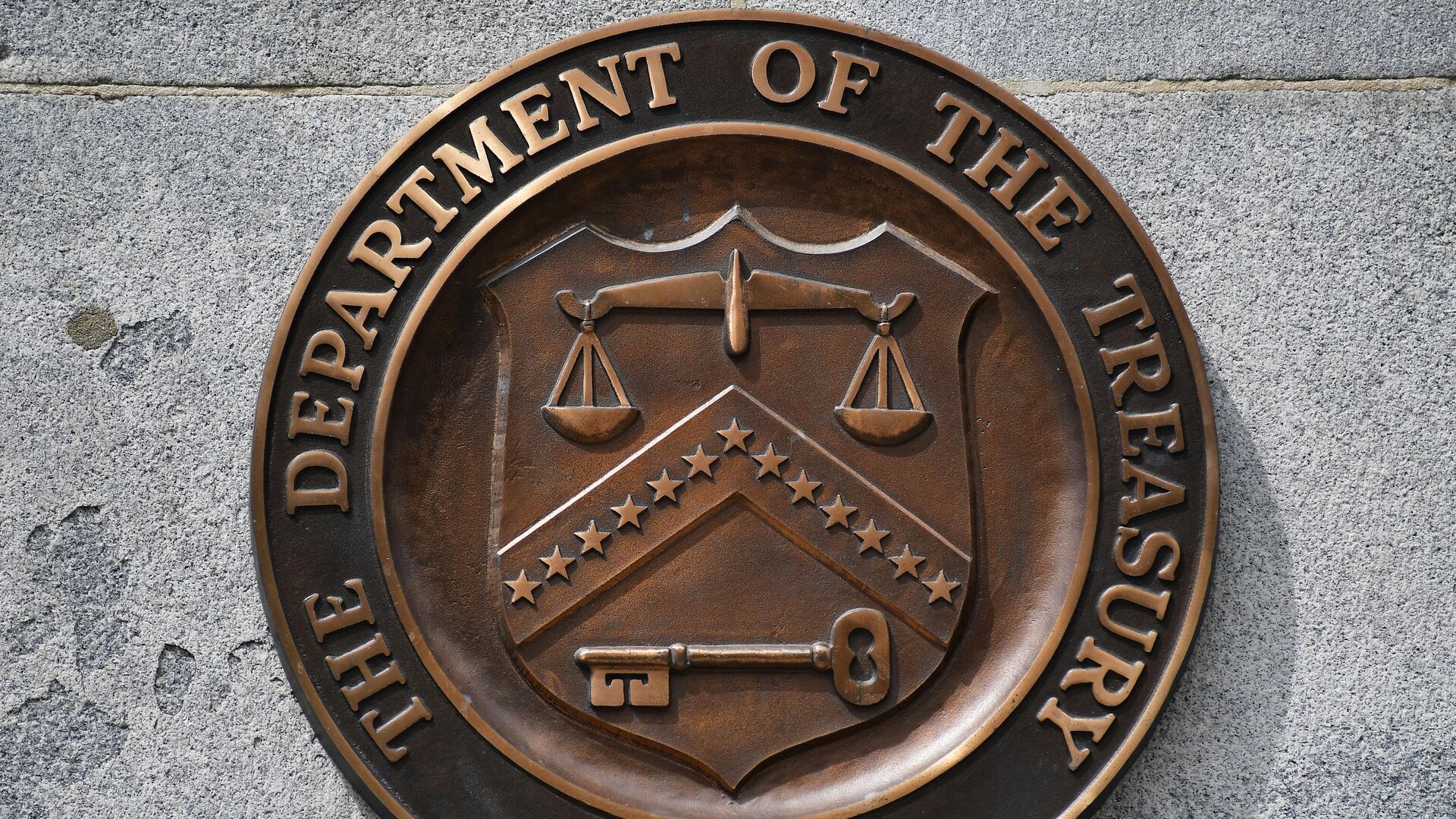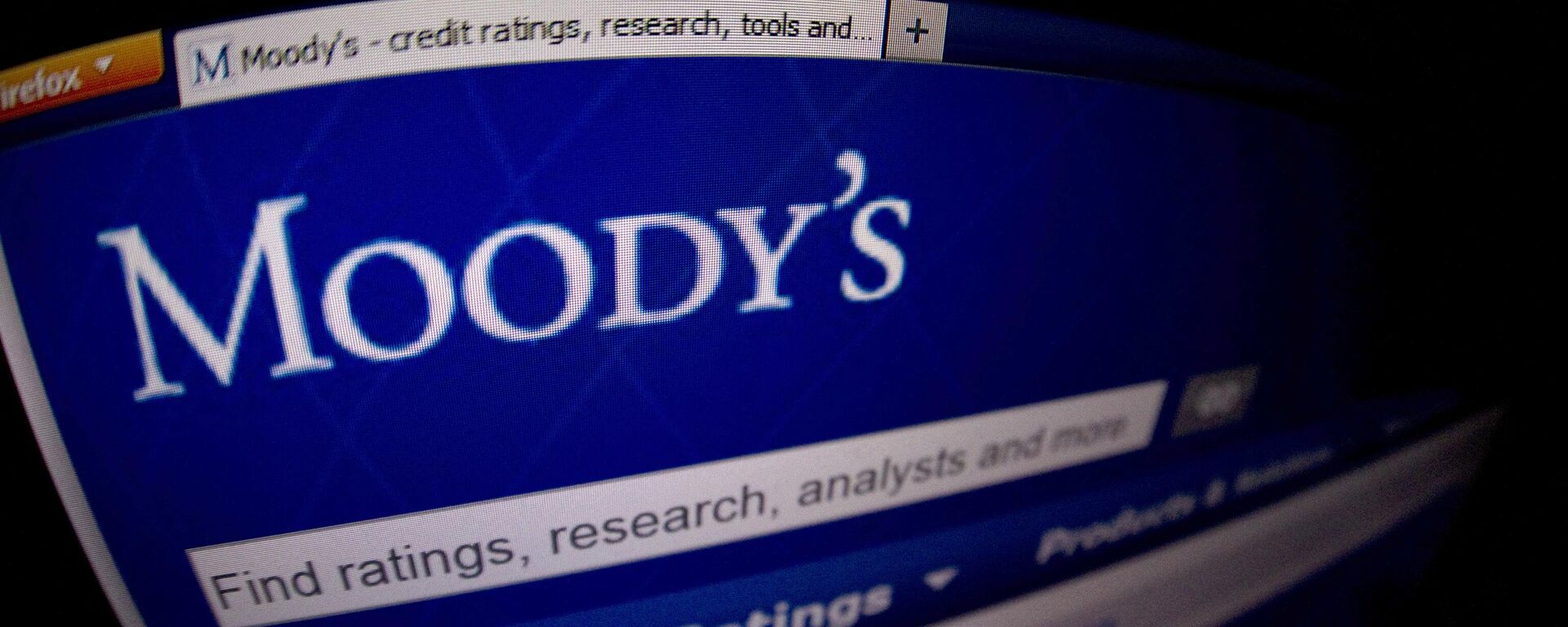https://en.sputniknews.africa/20231111/1063473490.html
US Credit-Rating Outlook Drops as Clock Ticks For New Government Shutdown
US Credit-Rating Outlook Drops as Clock Ticks For New Government Shutdown
Sputnik Africa
In September 2023, the US government headed off a shutdown caused by inability to pass a funding legislation. 11.11.2023, Sputnik Africa
2023-11-11T10:20+0100
2023-11-11T10:20+0100
2023-11-11T12:35+0100
joe biden
united states (us)
house of representatives
international
west
https://cdn1.img.sputniknews.africa/img/07e7/0b/0b/1063473668_0:0:3072:1728_1920x0_80_0_0_19c2ef27409c8665957f79ec05eb4707.jpg
Credit rating agency Moody's has lowered the outlook for the US government from stable to negative, citing the country's worsening fiscal position.Deputy Secretary of the Treasury Wally Adeyemo rejected the assessment, claiming that the US economy "remains strong, and Treasury securities are the world's preeminent safe and liquid asset."He spoke as House Republicans remain at odds over how a short-term stopgap funding bill, also known as a continuing resolution, should be structured ahead of the looming deadline.Former House Speaker Kevin McCarthy, for his part, earlier expressed confidence that the US would avoid a federal government shutdown on November 17, when the short-term funding bill expires. McCarthy was ousted from his job days after he teamed up with Democrats on a stopgap measure to avert the last shutdown threat on September 30. At the time, the House of Representatives passed a short-term bill to keep the US government open for 45 days, which was later approved by the Senate and signed into law by President Joe Biden.
https://en.sputniknews.africa/20230916/african-economies-hurt-by-rating-agencies-says-malian-economist-1062154021.html
united states (us)
west
Sputnik Africa
feedback@sputniknews.com
+74956456601
MIA „Rossiya Segodnya“
2023
News
en_EN
Sputnik Africa
feedback@sputniknews.com
+74956456601
MIA „Rossiya Segodnya“
Sputnik Africa
feedback@sputniknews.com
+74956456601
MIA „Rossiya Segodnya“
joe biden, united states (us), house of representatives, international, west
joe biden, united states (us), house of representatives, international, west
US Credit-Rating Outlook Drops as Clock Ticks For New Government Shutdown
10:20 11.11.2023 (Updated: 12:35 11.11.2023) In September 2023, the US government headed off a shutdown caused by inability to pass a funding legislation.
Credit rating agency Moody's has lowered the outlook for the US government from stable to negative, citing the country's worsening fiscal position.
"Continued political polarization within US Congress raises the risk that successive governments will not be able to reach consensus on a fiscal plan to slow the decline in debt affordability," Moody's said in a statement on Friday.
Deputy Secretary of the Treasury Wally Adeyemo rejected the assessment, claiming that the US economy "remains strong, and Treasury securities are the world's preeminent safe and liquid asset."
William Foster, a senior credit officer at Moody's, has meanwhile told the Bloomberg news agency that the new negative outlook covers "all the risks around another [US] government shutdown."
He spoke as House Republicans remain at odds over how a short-term stopgap funding bill, also known as a continuing resolution, should be structured ahead of the looming deadline.
Former House Speaker Kevin
McCarthy, for his part, earlier expressed confidence that the US would avoid a federal government shutdown on November 17, when the short-term funding bill expires. McCarthy was ousted from his job days after he teamed up with Democrats on a stopgap measure to avert the last shutdown threat on September 30.
At the time, the House of
Representatives passed a short-term bill to keep the US government open for 45 days, which was later approved by the Senate and signed into law by President Joe Biden.


